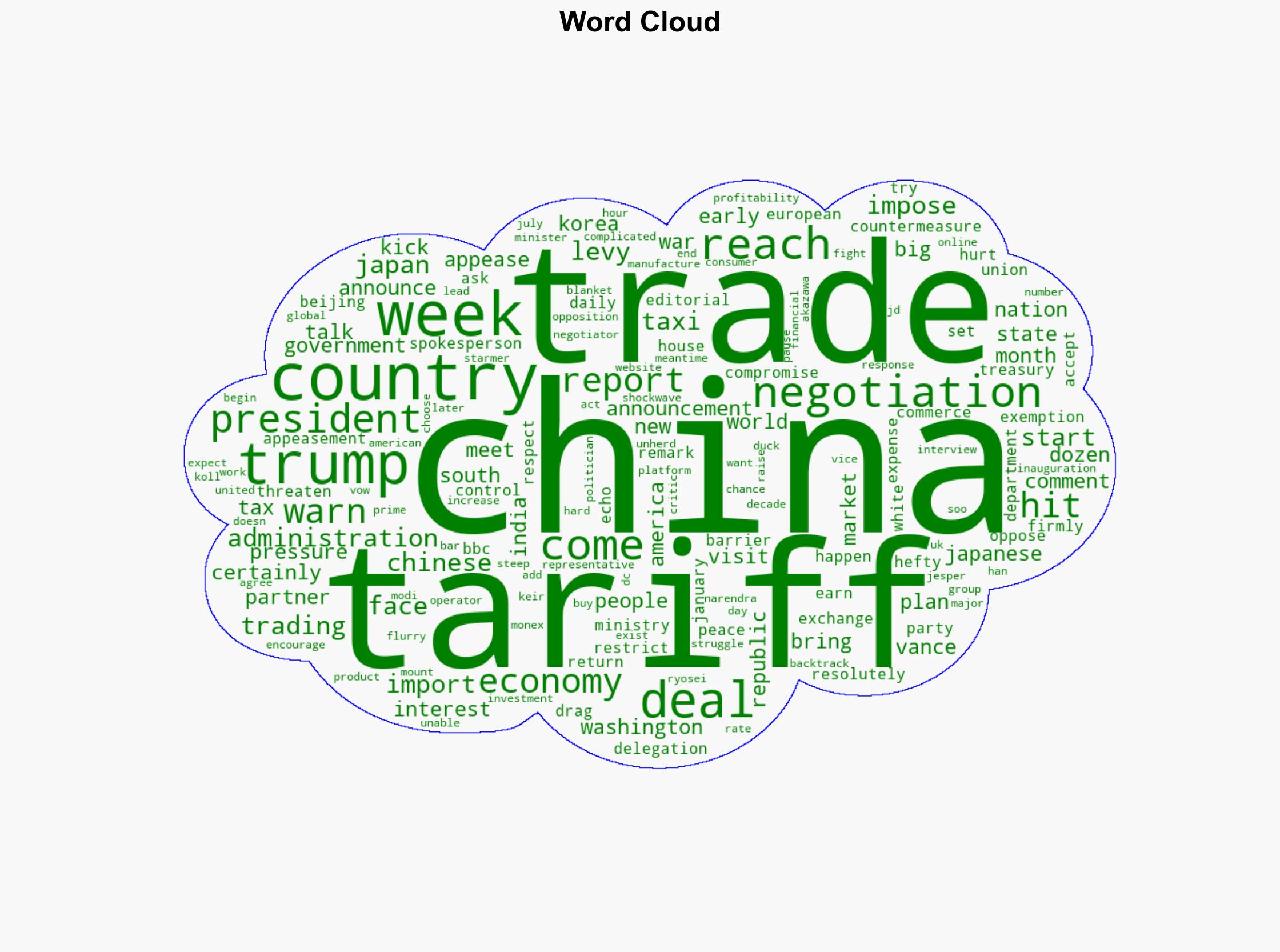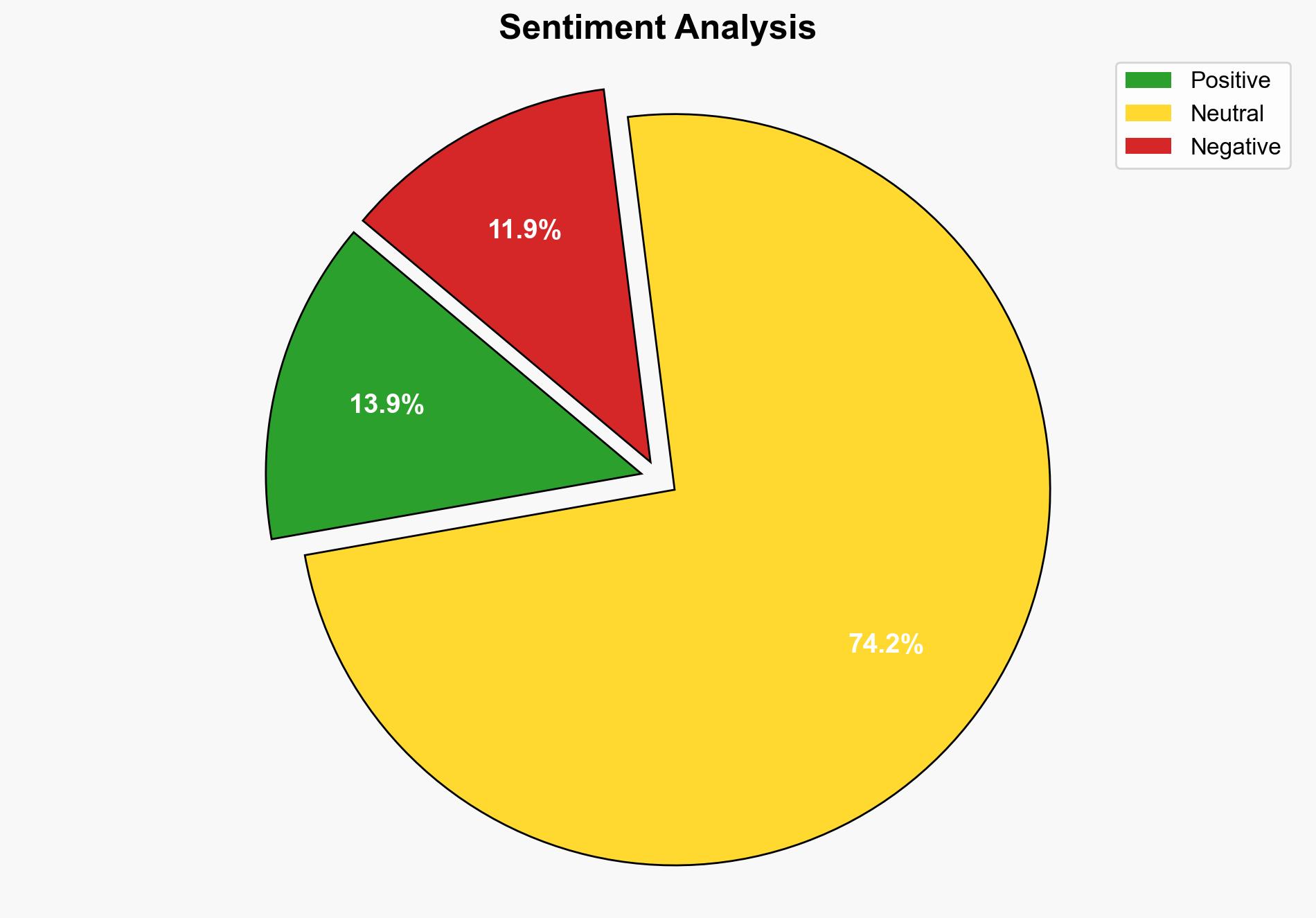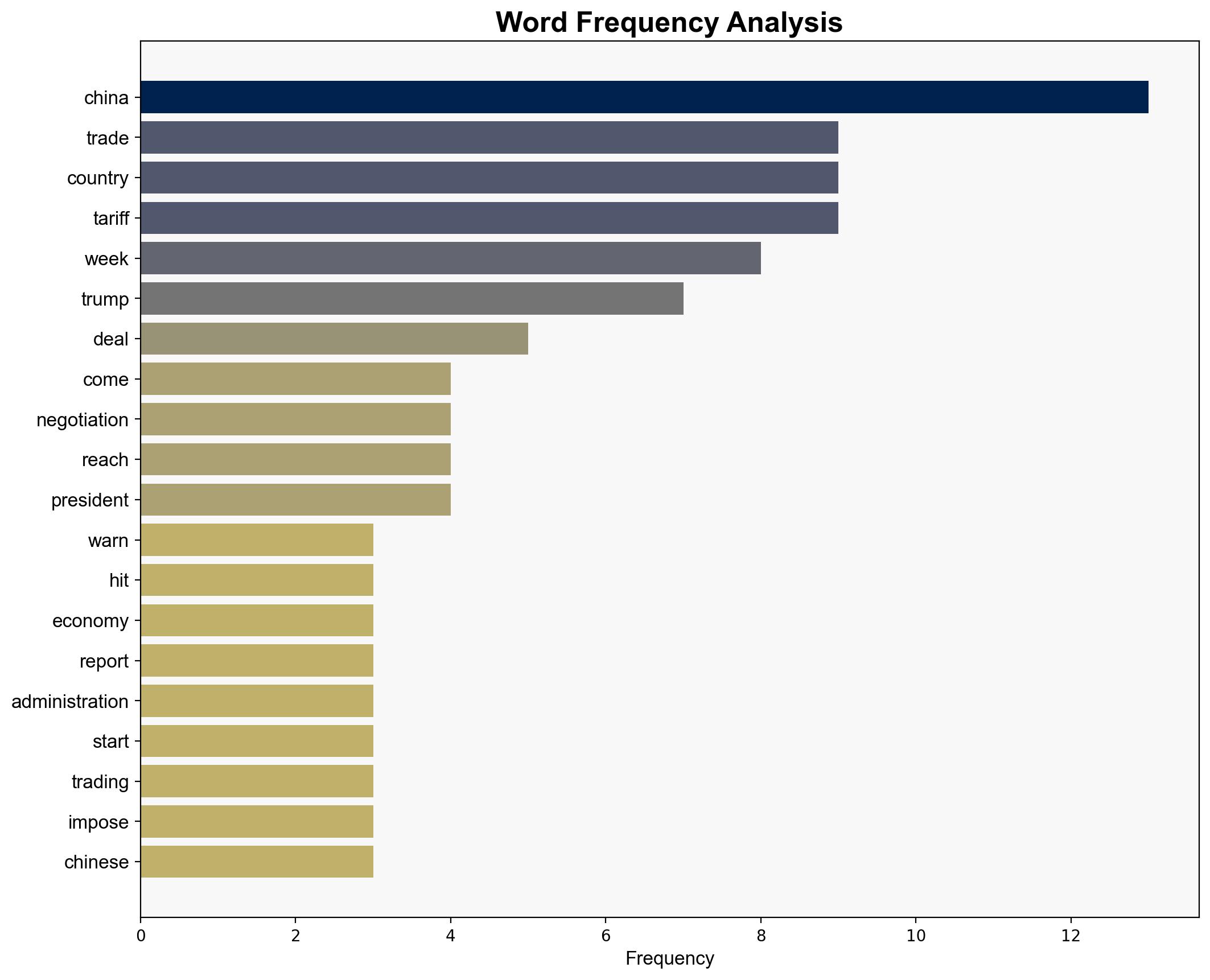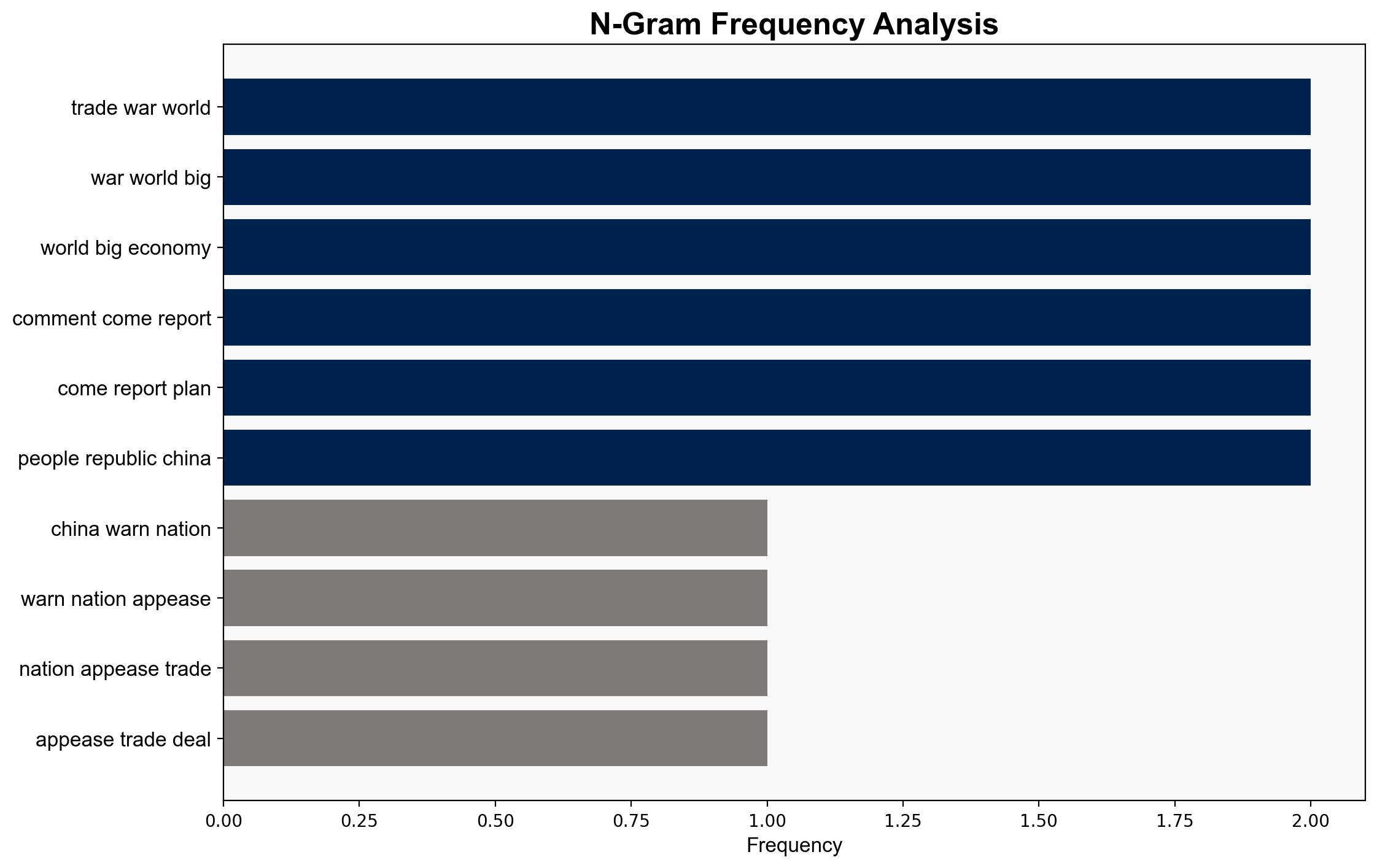China slams nations trying to ‘appease’ US in trade deals – BBC News
Published on: 2025-04-21
Intelligence Report: China slams nations trying to ‘appease’ US in trade deals – BBC News
1. BLUF (Bottom Line Up Front)
China has issued a warning to countries that are aligning with the United States in trade negotiations, suggesting that such actions could harm Beijing’s interests. This development is part of the broader context of the ongoing trade tensions between the world’s largest economies, which could have significant global economic implications. It is recommended that stakeholders closely monitor these negotiations and prepare for potential disruptions in international trade dynamics.
2. Detailed Analysis
The following structured analytic techniques have been applied to ensure methodological consistency:
SWOT Analysis
Strengths: China’s robust economic infrastructure and significant global trade influence.
Weaknesses: Dependence on international markets and potential vulnerability to coordinated trade barriers.
Opportunities: Potential to strengthen alliances with non-US aligned nations.
Threats: Escalation of trade tensions leading to broader economic instability.
Cross-Impact Matrix
The interplay between US-China trade policies and global economic stability is critical. Actions by the US to impose tariffs can lead to retaliatory measures by China, affecting global supply chains and economic growth.
Scenario Generation
Best Case: Diplomatic negotiations lead to a reduction in tariffs and stabilization of trade relations.
Worst Case: Escalation into a full-scale trade war, severely impacting global markets.
Most Likely: Continued tension with periodic negotiations and temporary agreements.
3. Implications and Strategic Risks
The ongoing trade tensions pose risks to global economic stability, with potential impacts on supply chains, market confidence, and international relations. The situation may also lead to increased regional alliances against perceived economic aggression.
4. Recommendations and Outlook
- Encourage diplomatic engagement to de-escalate tensions and seek mutually beneficial trade agreements.
- Prepare for potential economic disruptions by diversifying trade partnerships and supply chains.
- Monitor regional responses and adjust strategies to mitigate adverse impacts on national economies.
5. Key Individuals and Entities
Jesper Koll, Ryosei Akazawa, Han Duck-soo, JD Vance, Narendra Modi, Keir Starmer.
6. Thematic Tags
(‘national security threats, economic stability, trade negotiations, global markets’)
7. Methodological References
Structured techniques used in this report are based on best practices outlined in the ‘Structured Analytic Techniques Manual’.





